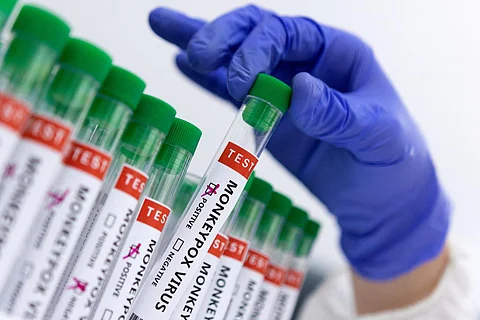

Kerala has confirmed its first and India’s second case of monkeypox this year. The patient is a 38-year-old man from Edavanna, Malappuram, who returned from Dubai on September 13. He is currently undergoing treatment at Manjeri Medical College Hospital. After experiencing high fever and visible blisters, the man sought medical help on September 16, leading to the authorities sending his samples for testing. The infection was confirmed by the virology lab at Kozhikode Medical College Hospital (MCH).
Following this, Kerala’s Health Minister Veena George advised the public to stay cautious and released a list of hospitals equipped for treatment and isolation across the state. She emphasized that while there is no immediate cause for concern, preventive measures are essential.
Before his diagnosis, the patient had visited two hospitals and traveled locally with friends, raising concerns about possible transmission. The Edavanna panchayat has set up rapid response teams to supply essential items to those placed in isolation. Local health authorities, along with assistance from airline officials, have compiled a contact list by tracing his activities and identifying those who traveled with him.
Sixteen people, including flight passengers and close contacts, have been placed in home isolation, though none are currently exhibiting symptoms. The patient’s wife and children, who live in a separate residence, were not in close contact and have not been included in the isolation list. According to Malappuram District Medical Officer (DMO) Dr. R Renuka, the patient’s condition is stable, with his fever subsiding and the monkeypox rashes on his body healing.
Samples from the patient will also be sent to the National Institute of Virology (NIV), Pune, to determine the virus strain. The DMO mentioned that officials will speak with the patient after his recovery to investigate how he contracted the virus.
Monkeypox, also known as mpox, is a zoonotic virus that can be transmitted from animals to humans through direct contact with infected animals' blood, bodily fluids, or lesions. The virus has been found in various animals, including squirrels, rats, and certain monkey species. Human-to-human transmission occurs through direct contact with the lesions, bodily fluids, or respiratory droplets of an infected person. Sexual contact can also spread the virus.
Due to the cessation of smallpox vaccination globally, there is reduced immunity to monkeypox in the general population. While monkeypox is not as easily transmissible as airborne diseases like COVID-19 or H1N1, it can spread through physical contact, making preventive measures crucial.
In response to this case, Kerala’s Health Department has reiterated its 2022 Standard Operating Procedures (SOPs) for managing monkeypox cases. Veena George instructed all hospitals to adhere to these guidelines, including isolation protocols for patients showing symptoms. The Union Ministry of Health and Family Welfare has also directed state governments to prepare hospitals for managing monkeypox cases and enhanced surveillance at airports nationwide.
The World Health Organisation (WHO) has classified monkeypox as a public health emergency of international concern, particularly due to its widespread occurrence in parts of Africa. Preventive measures include avoiding close contact with infected individuals, using protective gear like N95 masks, gloves, and gowns when handling patients, and disinfecting equipment and spaces used by infected individuals.
Despite the confirmed case, officials maintain that there is no cause for panic, but strict adherence to safety protocols is essential to prevent further spread.
